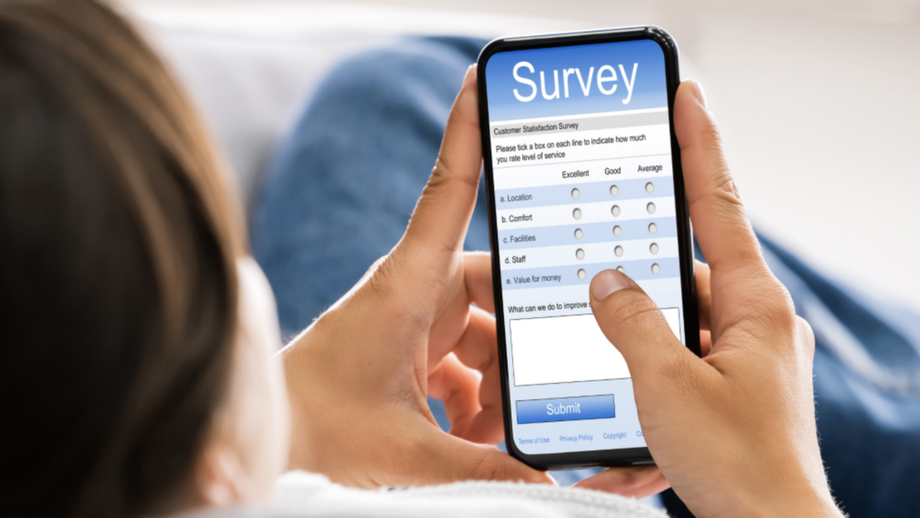Market research is critical in shaping business strategies and decisions, helping companies better understand their customers, market trends, and competition. Nevertheless, conventional techniques for conducting market research may consume a lot of time and money and restrict the range of potential responses. As stated in the article “Using Mobile Surveys in Market Research in 2023,”: “Mobile surveys provide an invaluable tool for market researchers by allowing for the collection of unique insights quickly and cost-effectively.” Mobile surveys have emerged as a powerful tool to revolutionize market research, offering several advantages over traditional methods. With the increasing use of smartphones and mobile devices worldwide, mobile surveys enable researchers to reach broader and more diverse audiences, collect real-time data, and reduce response bias. In this context, this topic will explore the power of mobile surveys in revolutionizing market research, their benefits, challenges, and best practices for effective implementation.
How Mobile Surveys Revolutionize Market Research
A mobile survey is designed to be taken on a mobile device, such as a smartphone or tablet. They are tailored to fit mobile devices' smaller screen sizes and touch interfaces and are often used to collect data from people on the go or those who prefer to use their mobile devices to answer surveys. Researchers can deliver mobile surveys via various methods, including mobile-optimized websites, mobile applications, SMS, and messaging platforms like WhatsApp or Facebook Messenger.
As more and more people access the internet through mobile devices, mobile surveys have become increasingly popular in recent years. They provide a convenient and cost-effective way to reach many respondents quickly and easily. One of the significant advantages of mobile surveys is that they can be delivered to respondents wherever they are, making it easy to gather data in real-time, particularly useful when researchers need to collect data quickly.
Mobile surveys also benefit from capturing location data and other contextual information, providing valuable insights into consumer behavior. To ensure mobile surveys are effective, they must be optimized for mobile devices, with questions that are easy to read and answer on a small screen. They should also be designed with the limitations of mobile devices in mind, such as slow internet speeds and limited battery life.
Overall, mobile surveys are a powerful tool for collecting data quickly and efficiently. Mobile surveys have the potential to provide valuable insights into consumer behavior and preferences, making them an essential tool for market research. In addition, they can also be used to collect customer satisfaction surveys and employee feedback, providing businesses and organizations with vital information to improve their products, services, and work environments.
Exploring the Different Use Cases of Mobile Surveys
Businesses, organizations, and researchers use mobile surveys in various ways. Some everyday use cases include:
Market research: this type of survey is famous for gathering consumer behavior, opinions, and preferences data. They can be used to gauge interest in new products or services, identify trends in consumer behavior, and collect feedback on existing products or services.
Customer satisfaction surveys: this type of survey is a convenient way for businesses to collect customer feedback on their experiences with products, services, or customer service. These surveys can help companies identify improvement areas and make changes to better meet their customers' needs.
Employee feedback: can be used by employers to collect feedback from employees on various topics, such as job satisfaction, work environment, and company culture. This feedback can help employers identify areas for improvement and make changes to create a more positive workplace.
Post-product feedback: can be used to collect feedback from customers after they have used a product or service. This feedback can help businesses identify areas for improvement and make changes to meet their customers' needs better.
Restaurant and food delivery order feedback: can be used by restaurants and food delivery services to collect customer feedback on their experiences with ordering and receiving food. This feedback can help these businesses improve their processes and provide better customer service.
Research trackers: can collect data on trends in consumer behavior or opinions over time. Researchers can send periodic surveys to the same group of respondents to track changes in their behavior or beliefs.
Ad hoc surveys: can be used for one-time surveys on a specific topic, such as a current event or news story.
In-store experiences: can collect customer feedback on their experiences in a physical store. This feedback can help businesses improve their in-store experience and improve customer service.
Video diaries: can be used to collect video responses from respondents, allowing them to share their experiences and opinions more personally.
Website feedback: can collect feedback from visitors on their experiences navigating and using a website.
Overall, mobile surveys are a versatile tool used in various contexts to collect data quickly and efficiently.
Using Mobile Surveys
Businesses and organizations use mobile surveys in various ways to gather insights and improve their products or services. Here are some examples:
Customer feedback: Businesses can use mobile surveys to gather customer feedback about their product or service experiences. This feedback can help identify areas for improvement and inform future product or service development.
Employee feedback: Mobile surveys can also gather employee feedback about job satisfaction, work environment, and other relevant topics. This can help improve employee engagement and retention.
Market research: Mobile surveys can be used to conduct market research, such as gauging consumer preferences, tracking trends, and identifying new opportunities.
Event feedback: Mobile surveys can gather feedback from attendees at events, such as conferences or trade shows. This feedback can help organizers improve future events and tailor them to the attendees' needs.
Healthcare: Healthcare organizations can use mobile surveys to gather patient feedback on their experiences with healthcare services. This feedback can help improve patient satisfaction and identify areas for improvement in healthcare delivery.
Education: Mobile surveys can gather student feedback about their learning experiences and improve teaching methods.
Overall, mobile surveys provide a convenient and efficient way for businesses and organizations to gather insights from customers, employees, and stakeholders.
Benefits of Using Mobile Surveys in Market Research
Mobile surveys offer several benefits to market research. Firstly, they provide a convenient and cost-effective way to reach many respondents quickly and easily, including those constantly on the go. They also allow researchers to collect data in real time and capture location data and other contextual information that can provide valuable insights into consumer behavior.
Mobile surveys can provide up-to-the-moment precision in market research by gathering data quickly during events or conferences. This allows researchers to understand better how consumers feel about products, services, or events as they happen. Additionally, mobile surveys can be optimized for mobile devices with questions that are easy to read and answer on a small screen, ensuring better response rates and more accurate data collection.
Overall, mobile surveys are a powerful tool for market research that can provide valuable insights into consumer behavior and preferences while offering the convenience and cost-effectiveness that businesses need to stay competitive.
Conclusion
In conclusion, a mobile survey is designed and optimized for mobile devices such as smartphones and tablets. They are tailored to fit mobile devices' smaller screen sizes and touch interfaces. They can be delivered through various methods, including mobile-optimized websites, mobile applications, SMS, and messaging platforms. Mobile surveys are used by businesses, organizations, and researchers for different purposes, including market research, customer satisfaction surveys, employee feedback, in-store experiences, and website feedback, among others.
Mobile surveys offer several benefits, including collecting efficient data, gathering real-time data, capturing location and other contextual information, and reaching many respondents cost-effectively. However, to be effective, mobile surveys must be optimized for mobile devices, with questions that are easy to read and answer on a small screen, designed with the limitations of mobile devices in mind, such as slow internet speeds and limited battery life.
Overall, mobile surveys are a versatile and powerful tool for collecting data and can provide valuable insights into consumer behavior, preferences, and opinions. Mobile surveys will likely increase as more people continue to access the internet through mobile devices, making it an essential tool for businesses and researchers.


